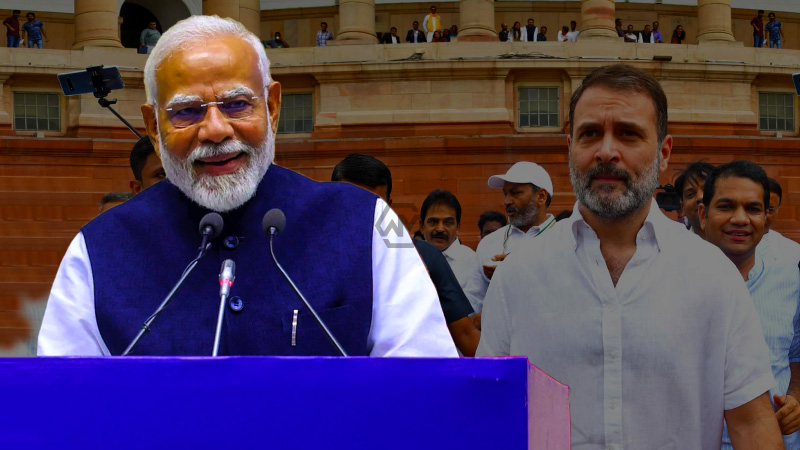- Privilege motion moved by Congress MP against PM Modi for sharing expunged remarks.
- Parliamentary privileges include special rights and immunities for MPs.
- The privileges committee investigates and recommends actions on breaches.
The privilege motion against Prime Minister Narendra Modi arises from his sharing of a speech by BJP MP Anurag Thakur on social media, which included defamatory remarks against Rahul Gandhi.
These remarks had been expunged from the official records by the Speaker, indicating their inappropriate nature for parliamentary proceedings.
The Mechanism and Impact of Parliamentary Privilege Motions
Parliamentary privileges, as outlined in Article 105 of the Indian Constitution, grant MPs freedom of speech within Parliament and immunity from legal proceedings regarding their parliamentary activities. These privileges enable MPs to perform their duties without external interference.
Parliamentary privileges are essential rights and immunities that allow MPs to discharge their duties effectively. These privileges include freedom of speech within Parliament and protection from legal proceedings related to parliamentary activities. While the Indian Constitution mentions these privileges, the specifics are guided by parliamentary conventions and rules. Members are safeguarded against arrest under civil processes during parliamentary sessions and for a period before and after sessions.
When a privilege motion is raised, it must concern a recent and specific issue requiring the Council’s intervention. The Speaker or Chair examines the motion and decides whether to admit it. If admitted, it is referred to a privileges committee composed of nominated members. This committee investigates the matter, reviews documents, calls witnesses, and makes recommendations based on its findings.
The privileges committee’s report is then considered by the House, which can suggest amendments or recommend actions, including penal measures in extreme cases. This process ensures that parliamentary privileges are not misused and that members are held accountable for their actions, preserving the sanctity and proper functioning of parliamentary proceedings.
The privilege motion mechanism serves as a crucial check to maintain the integrity and accountability of parliamentary proceedings, ensuring that MPs can perform their duties without misuse of their special rights and immunities.
“Parliamentary privileges are essential for MPs to perform their duties without interference, ensuring the integrity of the legislative process.”



